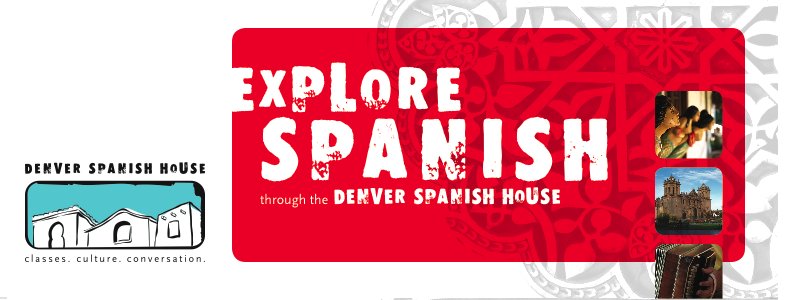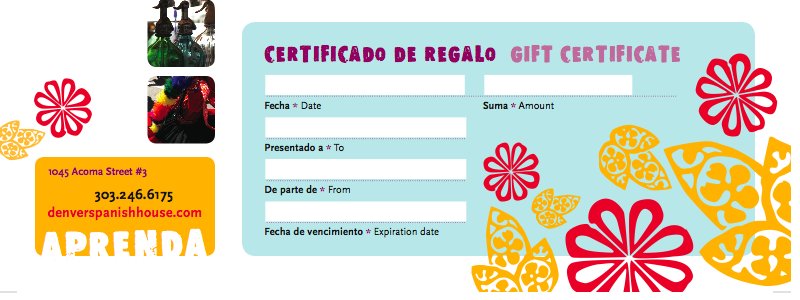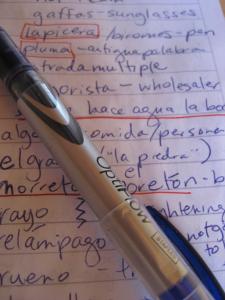High Beginner Spanish
Submitted by Nikki on
Course Description
This class is designed for students who have been through an intro to Spanish course (covering basic vocabulary, days of week, months of the year, regular verbs in the present and common irregular verbs including ser and estar).
This Wednesday night course will expand your vocabulary and cover:
- Irregular verbs in the present
- Speaking about the future (using IR + A)
- Comparative and superlative adjectives
- Speaking in the past using regular verbs
- Common expressions, phrases, and idioms
Taught by a native speaker from Spain, we will use articles, songs, listening exercises as well as writing and speaking exercises throughout the course.
Class Pricing
The series includes eight weeks of 90 minute weekly classes. The total cost for the series is $144, payable in one payment or two payments of $75 (total $150).
Checks or money orders can be written to Denver Spanish House, LLC and sent to:
Denver Spanish House





